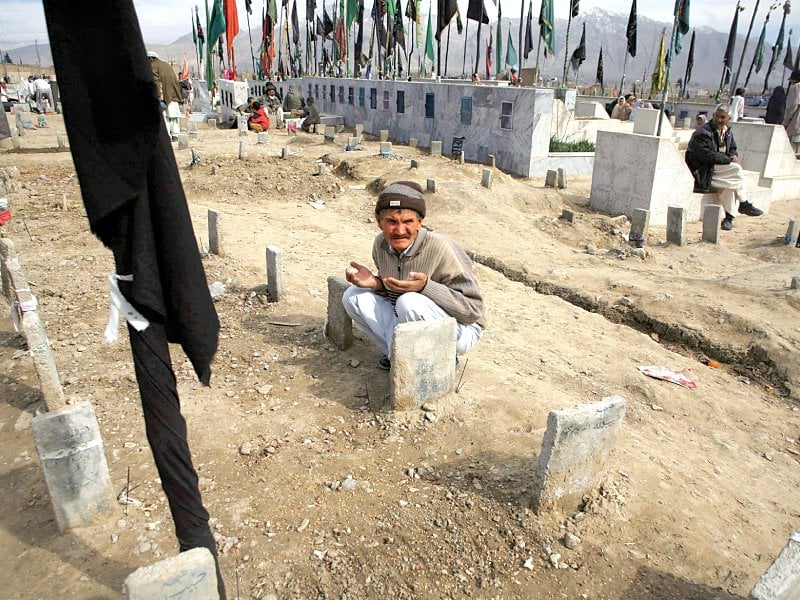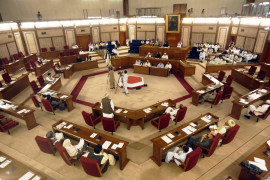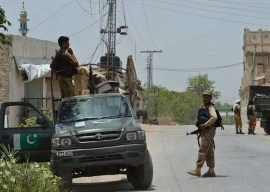
Bibi Razi struggles to describe the worst day of her life.
January 10, 2013. A day scorched in her mind, possibly forever. The day she learnt that her son Awais Ahmed, 27, had been killed in the suicide attack. That he was never coming back.
“What do you want to hear and what do you expect me to say?” she asks, as anguished tears stream down her face. “My son Awais is gone. That is all. I never dreamt that my new year would start off in this way.”
On that day, Awais was at work, making jewellery. When the first blast occurred, he and his two brothers, 39-year-old Ahmed Raza and 25-year-old Ahmed Jamal, rushed to the snooker club on Alamdar Road to help with rescue operations.
That’s precisely when a second suicide bomber struck, killing Ahmed, amongst many others, on the scene.
“My son was missing and we only learned about his death when we got to the Combined Military Hospital,” says Bibi.
The brothers were shifted to the Liaquat National Hospital in Karachi for treatment and have yet to be discharged. Jamal has lost his leg. Tragic still, they don’t know that their brother is dead.
“I don’t have the courage to tell them,” says Bibi, breaking down again.
Awais has left behind more than a grieving mother and brothers. He has also left behind a wife and three young daughters – Kamil, 4, Zainab, 3, and one year old Hasinat.
Now, Bibi Razi teaches the Holy Quran to children just to make ends meet. Jamal is jobless, Raza was a rickshaw driver before being injured. Life is insecure, bleak.
“God knows when this suffering will end,” she concludes, wracked with despair.
Unfortunately, Bibi Razi and other loved ones grieving for victims of the Alamdar Road incident are not alone in their sorrow. The second chilling and blatant massacre of the Hazaras on February 16, this time on Kirani Road, has also claimed too many lives, of the living and the dead.
One of those is Mohammad Ishaq, 40, now a shadow of his former self.
Like Bibi Razi, he has hardly spoken since the day he lost what he believed to be everything. Five members of Ishaq’s family were killed -- his wife, Rabia, two daughters Qubra,12, and eight-year-old Ruqia, sister-in-law Zuhra, 30, and his six-year-old nephew Mohammad Hussain.
Ishaq works as a tailor in Hazara Town. He speaks with a thick, melodious Persian accent. As he attempts to describe the fateful day, he breaks down and finds it difficult to stop crying for a while.
“The suicide bomber struck when my daughters Qubra and Ruqia were on their way back from school,” he says in a soft voice, difficult to hear. “Razia Bibi was in the market with Zuhra and her son, buying groceries for dinner. That’s when the water tanker packed with explosives went off. That’s when it all ended.”
In this emotionally charged environment, several people interrupt to express their anger at both the terrorist and the seemingly ineffective government functionaries.
Ishaq, however, seems to have a direct, confident response.
“The Lashkar-e-Jhangvi [is behind these attacks],” he states with quiet resonance. “But the government knows that better than I do.”
He adds that he is not in favour of the army taking over, that the demand was on the dictation of his elders.
“We are a peaceful people. Here I stand, having lost my entire family, and I still ask for peace. We need to get serious about ending these senseless killings,” he says with a quiet strength that is most impressive. “Families have registered the names of the victims and are waiting for the promised compensation, but we are not trying to go abroad. Address our problems, please. We are not going anywhere.”
A little later, Mohammad Kazim, the owner of a computer shop in Hazara Town also recalls the day of the blast. He remembers the sheer magnitude of the blast, how the children inside the school and computer centre didn’t even stand a chance. He remembers the screams, the cries, the confusion.
“There was blood, human limbs, burnt flesh everywhere,” he says in a pained whisper. “It was Doomsday. Nothing short of Doomsday.”
Published in The Express Tribune, March 2nd, 2013.
COMMENTS (4)
Comments are moderated and generally will be posted if they are on-topic and not abusive.
For more information, please see our Comments FAQ
1729662874-0/One-Direction-(1)1729662874-0-405x300.webp)


1722421515-0/BeFunky-collage-(19)1722421515-0-165x106.webp)













@Happens, yes I too am not happy with this multi nation theory . its a 3 nation theory actually I dont know why people call it 2 nation . Ind / Pak and Bdesh make it 3 nations naa so why 2 nations . there is much strength in unity .
@Happens: Try in English this time. Thanks
The most beautiful people are those who have known suffering .
Days of 1971 returns Bangladesh again..Lots of refugee have started gathering near Assam border . People of a community butcher their own community ...:) On our left side people of one sect with in same community kill people of another sect...) . If Md. Ali Jinnah and M.Rahman were there with me , then I would have explained him "How so called 2 nation theory was the basest and vilest thought of their mind" , of course with 2 cups of Darjeeling tea ? Yes, I don't see the people who come down to streets regularly to show their solitary , be it for Burmese violence or Palestine case !!!Only Education with scientific thoughts and ideas and a salt with ions of patriotism(not more than 0.003 mg) in daily meals can change mindset of these community.....